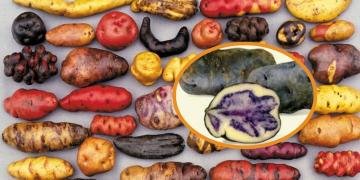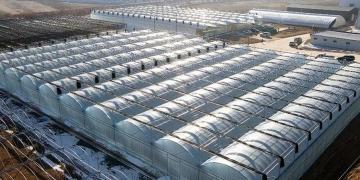Europe: First trials of genetically edited potatoes resistant to late blight successfully completed
The Oppotunity consortium successfully completed the first field trials with genetically edited potatoes, designed to resist late blight, one of the most devastating diseases of the crop.

Trials conducted in Sweden and Denmark confirm the viability and stability of these new potato lines for starch, which could reduce the use of fungicides and ensure the competitiveness and sustainability of the sector.
The European project Oppotunity, made up of 12 leading organizations in the starch potato value chain (for obtaining its starch), has reached a historic milestone in the genetic improvement of this crop: the successful completion of the first field trials with CRISPR-Cas edited potatoes in Sweden and Denmark.
These new genetic lines exhibit improved resistance to late blight (Phytophthora infestans), the most destructive crop disease worldwide.
An unprecedented European collaborative effort
Oppotunity brings together companies and research centers from across Europe, including Aardevo, Agrana, Agrico, AKV, Emsland Stärke, Finnamyl (Chemigate), KMC, Lyckeby, Niehoff, Norika, SolEdits and Südstärke, with the common goal of demonstrating the potential of new gene-editing technologies (NGTs), such as CRISPR, in sustainable agriculture.
“The achievement of improving a potato variety using NGT and seeing it grow in the field, after only one year of greenhouse work, is a huge step,” highlighted Hans Berggren, the project secretary. “We have verified the speed and efficiency that this technology brings to adapting crops to new environmental challenges.”
Field trials and seed multiplication
During the 2025 season, researchers cultivated in the field the first plants derived from minitubers generated in the greenhouse from seedlings edited the previous year. Simultaneously, a seed multiplication process was carried out to obtain a larger volume of tubers for new large-scale trials in 2026.
The starting genetic material was the ’Kuras’ variety, a starch potato widely used in Europe and provided by the company Agrico. Thanks to gene editing, this line now contains precise modifications that enhance tolerance to late blight, reducing dependence on fungicides and the crop’s environmental impact.
Faster, more efficient, and more sustainable
According to Sjefke Allefs, a potato breeder at Agrico, the advances made with CRISPR shorten the time normally required to obtain resistant varieties through conventional breeding by 8 to 10 years. “We are demonstrating that gene editing can offer concrete solutions to urgent problems, while maintaining the sustainability and competitiveness of the sector,” he stated.
The project also seeks to raise awareness among European authorities about the need to update the legislation that currently regulates genetic techniques, so that advances in NGT can be applied safely and transparently for the benefit of farmers, consumers and industry.
Innovation for a sustainable European agricultural future
Late blight causes global losses exceeding $6 billion annually and forces farmers to apply dozens of fungicide treatments per season. By introducing durable genetic resistance, Oppotunity could drastically reduce agrochemical use, boost productivity, and strengthen the crop’s environmental sustainability.
With more than 11,000 European farmers economically dependent on potato starch production, the project represents a commitment to maintaining the sector’s competitiveness within the framework of the European Green Deal, combining biotechnological innovation, industrial collaboration, and environmental responsibility.
Next steps
By 2026, the trials will be expanded to different agricultural environments, and the final selection of the most stable and effective genetic events will be made. The goal is to obtain a commercially available variety for consortium members and their partner farmers, combining yield, industrial quality, and long-lasting blight resistance.
The Oppotunity team is confident that these results will help accelerate the adoption of new genetic techniques in Europe, showing that modern biotechnology can be a key tool for a more resilient, sustainable, and competitive agriculture.
- Official website of the Oppotunity Project: https://www.oppotunity.eu/en/
Fuente: chilebio.cl




